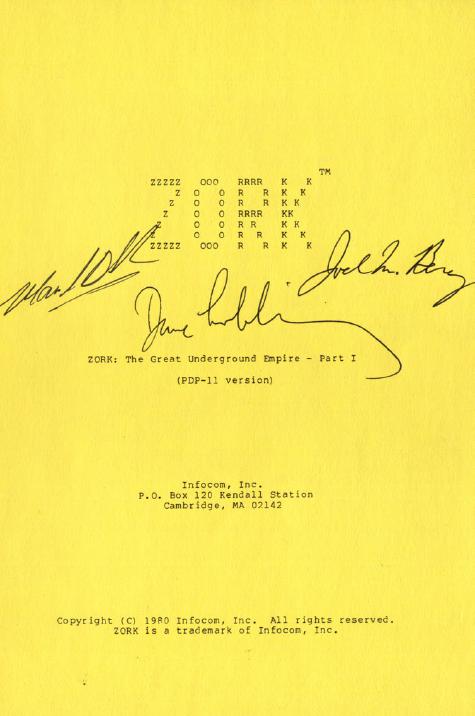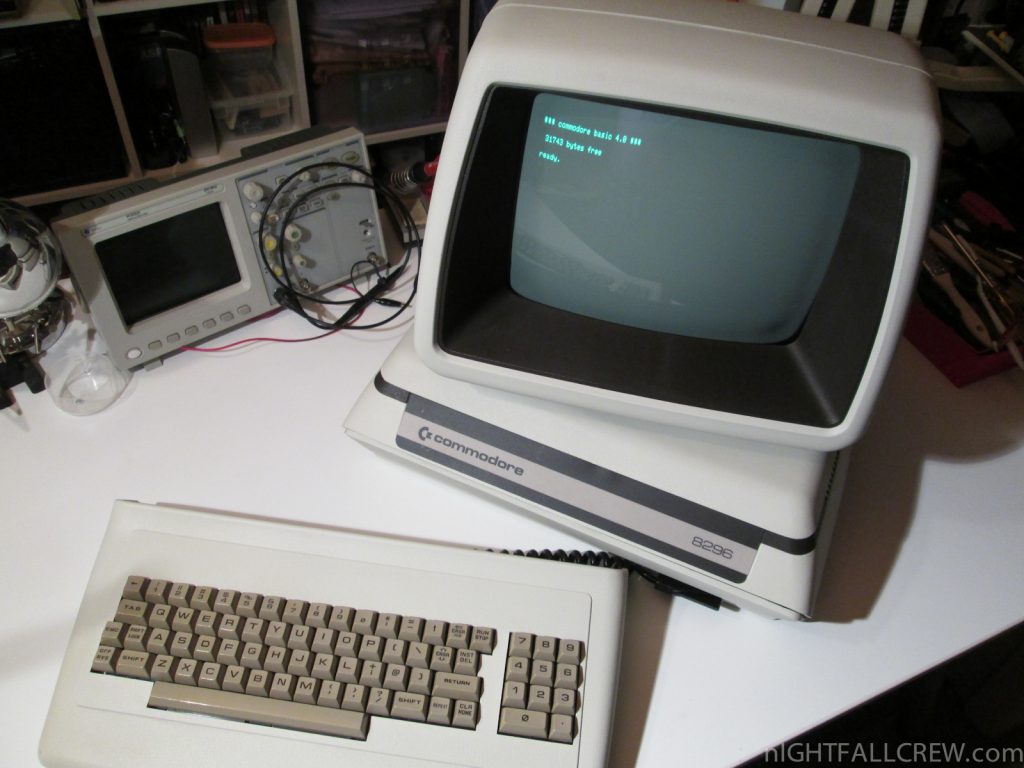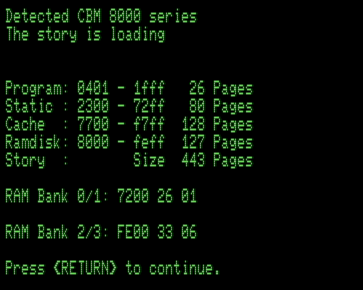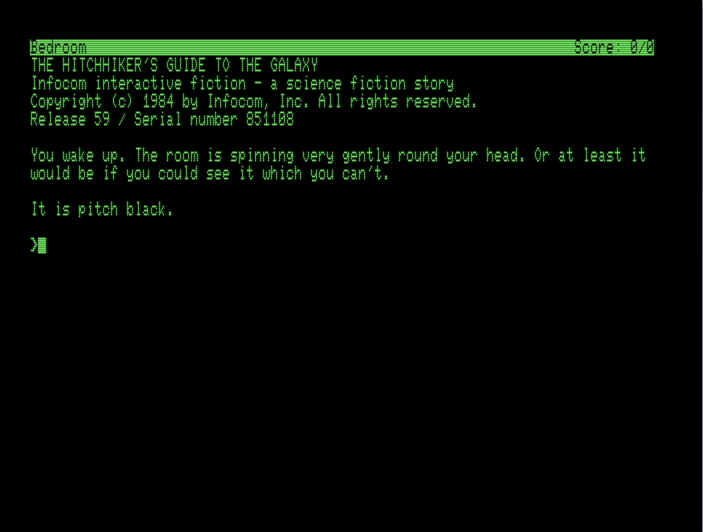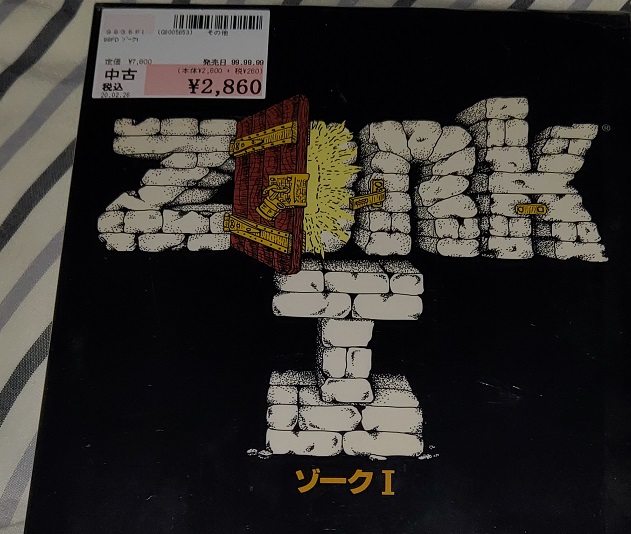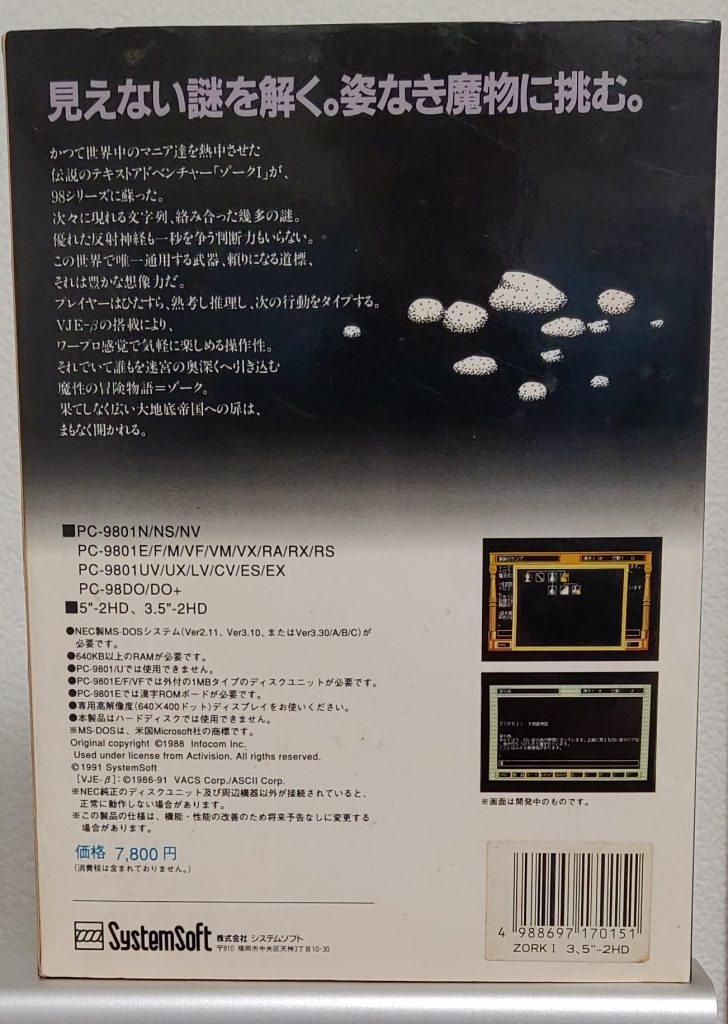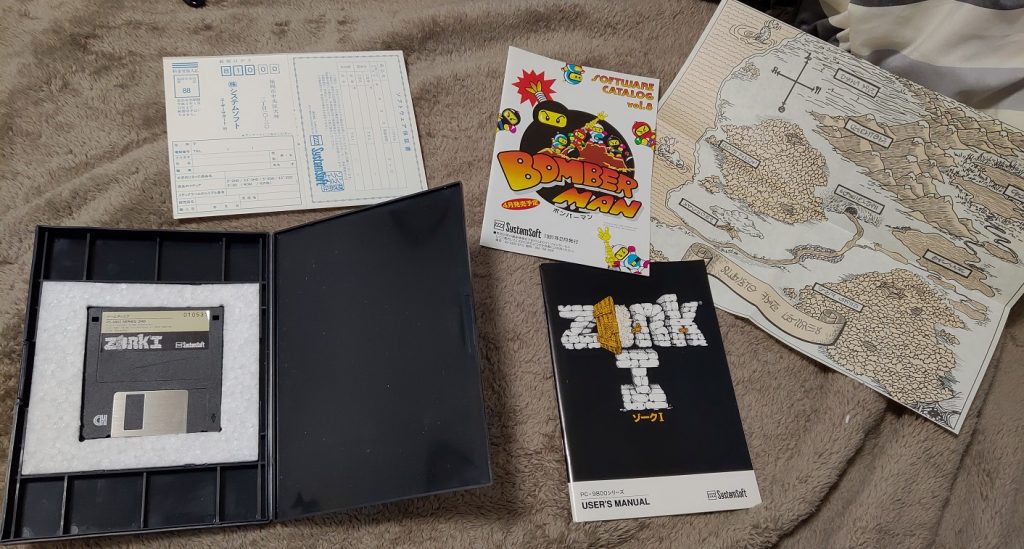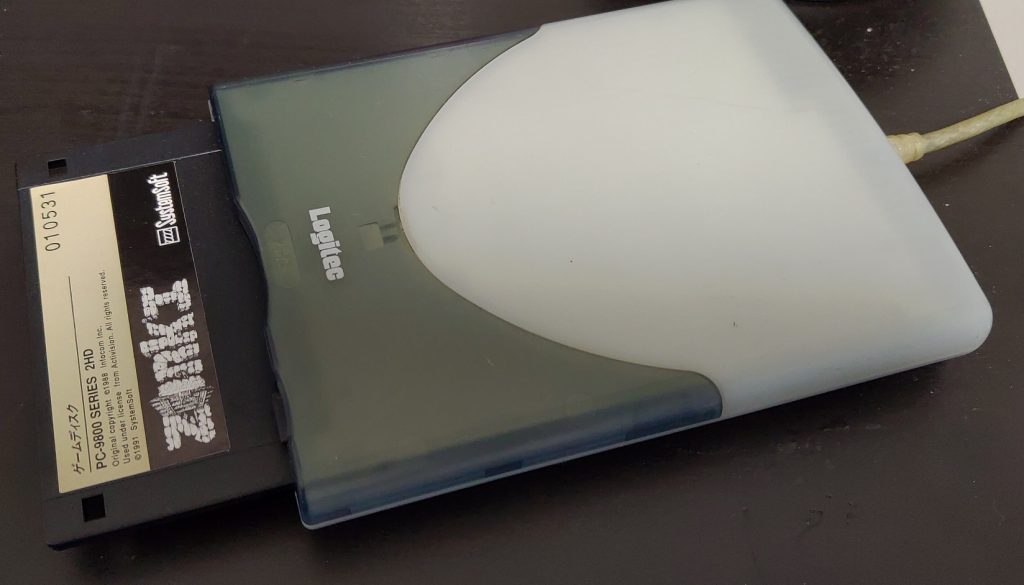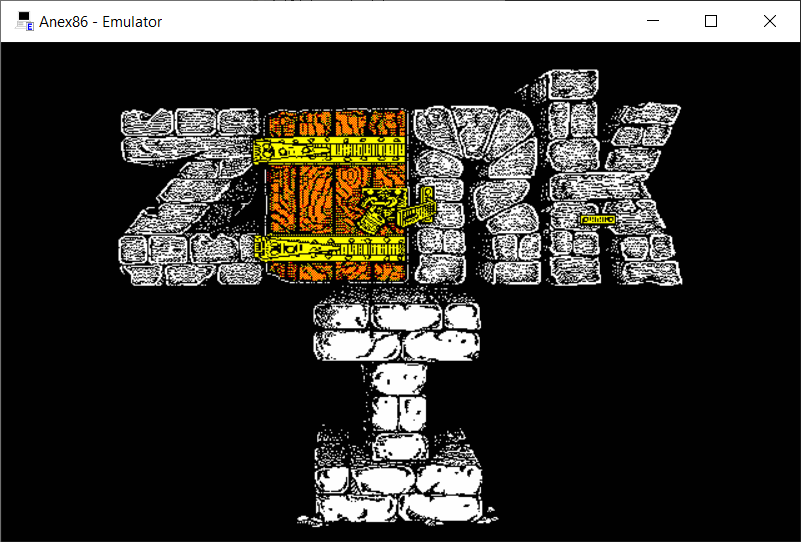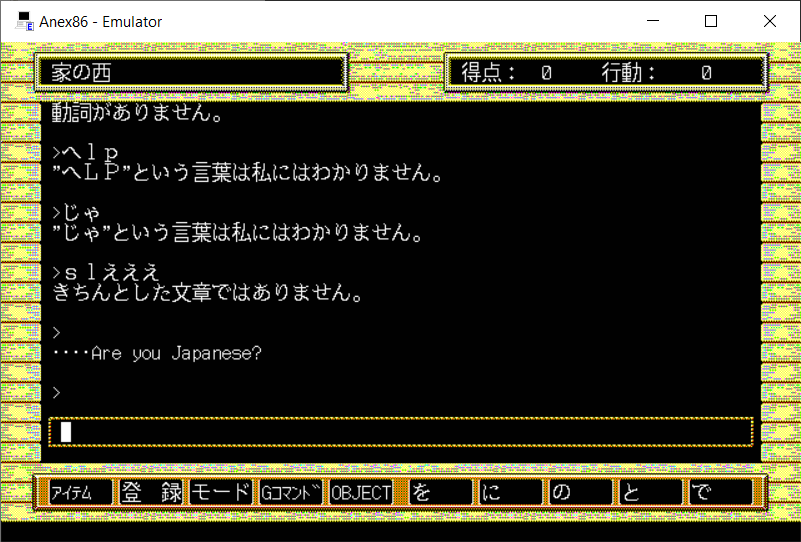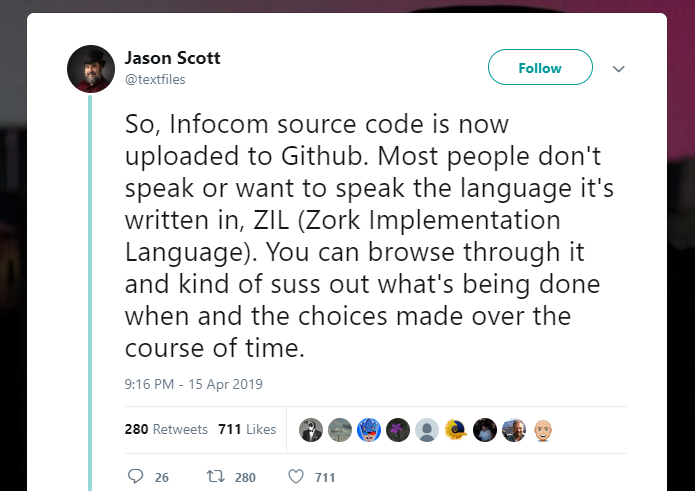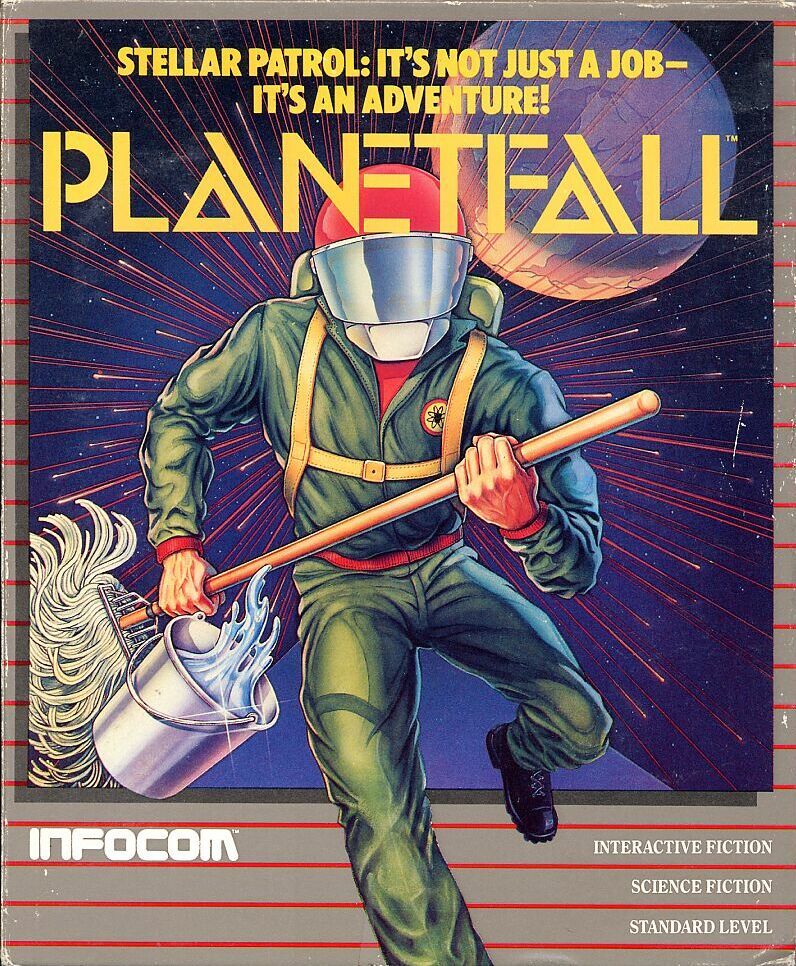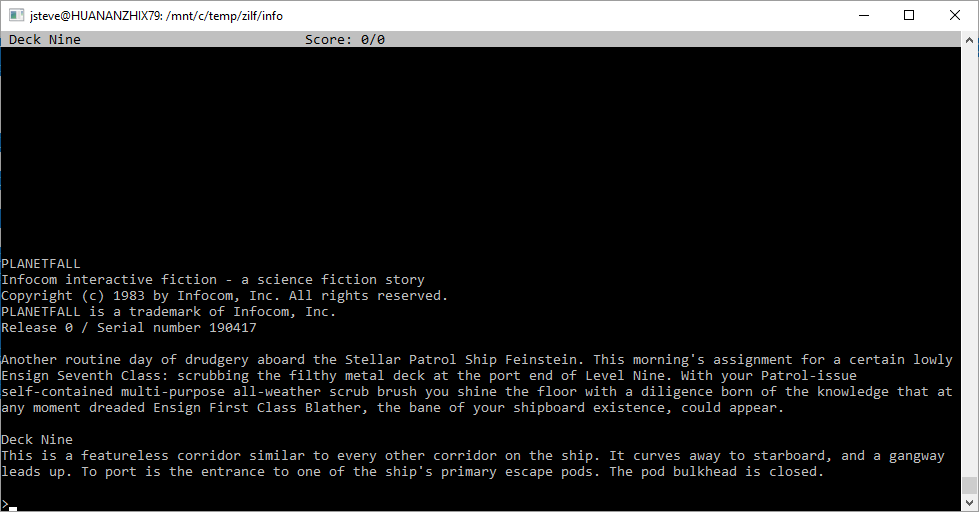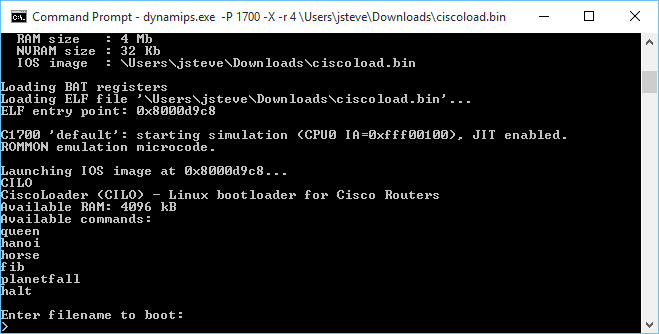I know this is a weird one, but I’ve always wanted to run Infocom games from ever since I found out it was a thing.
I know you maybe thinking of the FORTRAN port of the full Zork game, which does run on the same system. But this is NOT the FORTRAN reverse engineered game, rather it’s a port of the Z-Machine to the RT-11 / PDP-11.
Also this is NOT a 3rd party reverse engineering effort, it is the official Infocom Z-Machine source.
; Proprietary documentation of:
;
; Infocom, Inc.
; 55 Wheeler St.
; Cambridge, MA 02138
;
; Copyright (C) 1982, 1983 Infocom, Inc. All rights reserved.Yes it’s the real deal!
Ok so what or where to do this?! First you need SIMH or any other good PDP-11 emulator, a copy of RT-11, and of course the source to the interpreter oddly enough named PDP11.ZIP. Just keep in mind that this is NOT a pk-zip file, it’s a text file. It’s Macro-11 assembler source.
First you need a very simple config/type in to the SIMH PDP-11 emulator:
attach rk0 rtv4_rk.dsk
attach ptr pdp11.zip
boot rkAll being well you should boot into RT-11.
Now we copy the source into the machine through the paper tape reader. Just type in ‘COPY PC: ZIP.MAC’
.COPY PC: ZIP.MAC
Files copied:
PC: to DK:ZIP.MAC
.This will create a .mac or macro assembler source file. The extension matters as it will tell the compiler what file it is and what to do. But luckily this is a single file, and assembles quite easily. As a tip to Unix folk, I found that making the assembly source in MS-DOS CR/LF made life easier.
Compiling & linking is very straightforward
.COMPILE ZIP.MAC
ERRORS DETECTED: 0
.LINK ZIP.OBJ
. Now we need to import a game file. I usually test with Planetfall, so I grabbed the data file, and placed it into the working directory and then attached it to the emulator
Simulation stopped, PC: 152644 (BR 152622)
sim> att ptr planetfa
sim> c
.COPY PC: PLANET.IML
Files copied:
PC: to DK:PLANET.IML
.Notice the filenames are short, very 8.3 for some strange coincidence! Also I named it planet.iml, as that is what the interpreter is expecting. Now we can just run the zip and point it to the game data file!
.RUN ZIP
Line width (default is 80, end with LF for status line):
File name (current default is DK:$GAME$.IML) *dk:planet.iml
PLANETFALL
Infocom interactive fiction - a science fiction story
Copyright (c) 1983 by Infocom, Inc. All rights reserved.
PLANETFALL is a trademark of Infocom, Inc.
Release 37 / Serial number 851003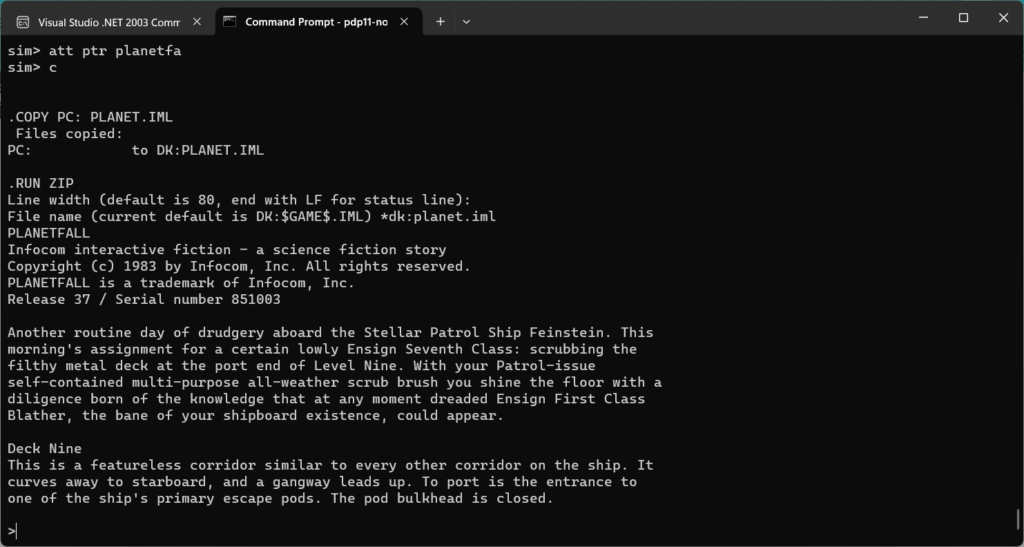
And there we go! We are now running Planetfall on our simulated PDP-11!
There is quite a few great 80’s systems in the github repository, I have no doubt the rest can be built, but I thought I’d tackle a system that was another bigfoot, a thing of pure legend!

